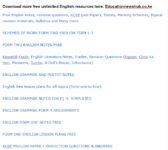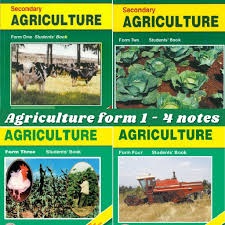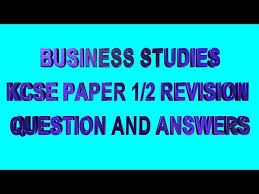Name…………………………….…….……………………………….. Adm No: …………………………
School …………………………………………………………Candidate’s Signature …………..………… Date…….………………
101/2
ENGLISH form 4
PAPER 2
(COMPREHENSION, LITERARY APPLICATION AND GRAMMAR)
INSTRUCTIONS TO CANDIDATES
- Write your name and Admission number in the spaces provided above
- Sign and write the date of examination in the spaces provided.
- Answer all the questions in the spaces provided.
- All working must be clearly shown where necessary.
- This paper consists of 9 printed pages.
- Candidates should check to ascertain that all pages are printed as indicated and that no questions are missing
For Examiner’s Use Only
| Question | Maximum score | Candidate’s score |
| 1 | 20 | |
| 2 | 25 | |
| 3 | 20 | |
| 4 | 15 | |
| Total score | 80 |
Download more free unlimited English resources here: Educationnewshub.co.ke
SCHEMES OF WORK FORM TWO ENGLISH TERM 1-3
ENGLISH GRAMMAR AND POETRY NOTES
English free lesson plans for all topics (Form one to four)
ENGLISH GRAMMAR NOTES FOR F1-4: SIMPLIFIED
ENGLISH GRAMMAR FORM 4 ASSIGNMENTS
FORM ONE ENGLISH LESSON PLANS FREE
KCSE ENGLISH PAPER 1 PREDICTION QUESTIONS & ANSWERS
English Functional Skills writing notes, exams, revision questions and samples
Free updated Secondary Lesson Plans for all subjects

- Read the passage below and then answer the questions that follow.
The insect is not a blind automation. There is a ray of conscious thought running through its whole life. This view will meet opposition: to some people, the insect is a machine without emotion; to others, it is just a shade over the mechanical, process of something called `discernment,’ but without the slightest gleam of reason.
Ants, however, show great intelligence as excavators. The ordinary plan of excavation is for ants to carry out earth and throw it outside the nest. There is nothing particular to note about it; all the ants engaged at the task behave in the same way. But one day I noticed a deviation. Some ants had made a nest on the side of a bank. The ejected earth ran down from it in a shoot, like a landslide on the face of a hill. The shoot was very steep and crumbling, and as each ant carried out its load it slipped on the loose material and tumbled down to the bottom of the slope. The ants, however, refused to be defeated. After some days of slipping and falling they managed to devise an ingenious plan for surmounting the serious difficulty. They assigned to one particular ant the duty of consolidating and hardening the ground. This ant set about collecting pebbles which it found near the base of the shoot. These pebbles it carried up the shoot and then spread them out in the form of a platform at the very top; just outside the mouth of the nest.
This was tremendous labour for one ant. The carrying of the pebbles up the slippery slope was a task that lasted several days. It required the entire labourer’s strength, and caused it innumerable falls. It was interesting to see selection at work. The ant never took the first pebble that offered. Several were examined, picked up and tested, until one was found that fitted the job. Moreover, it did not place its pebbles in a haphazard way: it carefully found a suitable spot for fitting of each load. The final result was a platform of pebbles on which the excavators walked easily, and no more of them fell down the slope.
Can we deny intelligence to this? Is this the action of automation, a thing that works blindly like a machine? No. intelligence runs all through the act. There is divergence from the accustomed habits; there is choice in the selection of pebbles; there is design in the making of the platform; there is the end in view, and one very much to the advantage of the ants. It was not instinct but reason at work.
I can no more deny intelligence to this ant than I can to a man who builds a parapet to prevent people from tumbling down a hill.
Questions
(a) Why does the writer believe that the insect is not a blind automation? (2marks)
(b) Identify and illustrate the figure of speech used in the second paragraph. (2marks)
(c) How did the ants overcome the problem of tumbling down the slope? (2marks)
(d) State how this problem was solved. (3marks)
(e) Make notes on the procedure followed by the particular ant in making the platform. (6marks)
(f) Why was there a divergence from accustomed actions of the ant? (2marks)
(g) Explain the meaning of the following as used in the passage (3marks)
(i) Automation
(ii) Surmounting
(iii) Parapet
Q2. Read the excerpt below and answer the questions that follow:
Mrs. Linde: Is Doctor Rank a man of means?
Nora: Yes, he is.
Mrs. Linde: And has no one to provide for?
Nora: No, no one; but-
Mrs. Linde: And comes here every day?
Nora: Yes, I told you so.
Mrs. Linde: But how can this well –bred man be so tactless?
Nora: I don’t understand you at all
Mrs. Linde: Don’t prevaricate, Nora. Do you suppose I don’t guess who lent you the two hundred and Fifty pounds?
Nora: Are you out of your senses? How can you think of such a thing! A friend of ours who comes here every day! Do you realize what a horribly painful position that would be?
Mrs. Linde: Then it really isn’t he?
Nora: No, certainly not. It would never have entered into my head for a moment. Besides, he had no money to lend then; he came into his money afterwards.
Mrs. Linde: Well, I think that was lucky for you, my dear Nora.
Nora: No, it would never have come into my head to ask Doctor Rank. Although I am quite sure that if I had asked him-
Mrs. Linde: But of course you won’t.
Nora: Of course not. I have no reason to think it could possibly be necessary. But I am quite sure that if I told Doctor Rank-
Mrs. Linde: Behind your husband’s back?
Nora: I must make an end of it with the other one, and that will be behind his back too. I must make an end of it with him.
Mrs. Linde: Yes, that is what I told you yesterday, but –
Nora: (walking up and down) A man can put a thing like that straight much easier than a woman –
Mrs. Linde: One’s husband, yes.
Nora: Nonsense! (Standing still) When you pay off a debt you get your bond back, don’t you?
Mrs. Linde: Yes, as a matter of course.
Nora: And can tear it into a hundred thousand pieces, and burn it up- the nasty dirty paper!
Mrs. Linde: (looks hard at her, lays down her sewing and gets up slowly) Nora, you are concealing something from me
Nora: Do I look as if I were?
Mrs. Linde: Something has happened to you since yesterday morning. Nora, what is it?
Questions
- What happens immediately after this excerpt? (3marks)
- Discuss any two issues brought out in this excerpt (4 marks)
- How is Mrs. Linde depicted in this extract? (4 marks)
- MRS LINDE: Don’t prevaricate, Nora. Do you suppose I don’t guess who lent you the two hundred
and fifty pounds?
Identify and explain stylistic device used in the above speech. (4mks)
- Because you do as your husband wishes. Add a question tag. (1 mark)
- Why does Nora refer to the bond as “the nasty dirty paper!”? (2 marks)
- From the play , Helmer is hardworking. How does this character trait complicate the drama? (3 marks)
- Give the meaning of the following (4 marks)
- i) A man of means
- ii) Prevaricate
iii) Horribly
- iv) Concealing
- Read the poem below and then answer the questions. (20mks)
BACK HOME
And one day I went back home:
Back home to the old homestead
With a ring of old huts
Surrounding a wide compound:
Swept clean for children to play
And yell and laugh and cry.
I walked briskly, thinking of home
Smoke rising from the huts
Filtered through the thatched roofs:
Dripping wet after a shower of rain;
Moist ground in the compound,
Grandpa sitting on his stool
and sipping from his gourd;
Birds singing in the mango tree:
And then finally I reached home:
The air heavy with silence
Huts, down in dry heaps of dilapidation
Shoots of scorched elephant grass:
Growing piously in the compound:
A carpet of mango leaves
Falling on the mound of earth
Under which was buried but the tip
Yes, only the tip of grandpa’s walking staff
Could be seen peeping from under the earth:
Pointing down to where the owner lay;
The lasting indication
Of his inability to talk again
Except by echoes of silence
Telling me I went back too late:
Jwani Mwaikusa.
Questions
(a) Describe the setting in this poem. (2 marks)
(b) Who is the persona in the poem? (2 marks)
(c) Where is grandpa? Give reasons for your answer. (2 marks)
(d) What is the effect of the alliteration in line 17? (2 marks)
(e) Giving two examples, show the effect of contrast as used by the poet. (4 marks)
(f) Identify and illustrate the two different moods prevailing in this poem. (4 marks)
(g) Explain the meaning of the following lines as used in the poem. (4 marks)
(i) ‘A carpet of mango leaves
Falling on the mound of earth”
(ii) ‘Of his inability to talk again
Except by echoes of silence”
- Grammar
(a) Rewrite the following sentences according to the instructions given after each. Do not change the meaning. (3 marks)
(i) Should he see you, he would be surprised. (Begin: Were …)
(ii) He awoke. He found the house on fire. (Join into a single sentence without using and)
(iii) I don’t know how you tolerated him for so long. (Use ‘put’ instead of ‘tolerated’)
(b) Fill in the blank spaces with appropriate prepositions. (3 marks)
(i) Harambee Stars was no match …………………………….. the Egyptian team.
(ii) The spectators were up ……………………………… their feet after John scored.
(iii)I ran ……………………………………. my former classmate in town yesterday.
(c) Supply one word which means the same as the underlined phrases in the following sentences. (3 marks)
(i) The meeting was postponed after failing to realise the minimum required number of members.
(ii) The telephone rang without stopping.
(iii) The lawyer treated all those who required his services with respect.
(d) Complete each of the following sentences with an appropriate phrasal verb. (3 marks)
(i) Lucia was surprised when her guests ………………………… late for the party.
(ii) Abdul noticed how cold it was when he ……………………………….. the plane.
(iii)All the ideas were good, but Otieno ………………………………… the best plan of all.
(e) Supply the correct form of the verb in the following sentences. (3 marks)
(i) All but my father ………………………………………… arrived (has/have).
(ii) Both cats …………………………………….. chasing birds (enjoy/enjoys).
(iii) The Minister as well as the Permanent Secretary and the Speaker of the House ………………………..
present (was/were).
ENGLISH 101/2
ENGLISH FORM 4
MARKING SCHEME
- Comprehension
(a) There is a ray of conscious thought√ 1 running through its whole life.√ 1
(b) Simile√ l — The ejected earth ran down from it in a shoot, like a landslide on the face of a hill.√ 1
(c) They assigned one particular ant the duty of consolidating√ 1 and hardening the ground. √1
(d) The ant carried pebbles up the shoot√ 1 and spread them out in the form of a platform√ l just outside the mouth of the nest.√ l
(e) It never took the first pebble that offered√ la
Several pebbles were examined√ lb
These were picked up and tested√ lc
Until the one that fitted the job was found√ ld
It did not place its pebbles in a haphazard way√ le
It carefully found a suitable spot for fitting each load √ 1f (Any 6 x 1 mark = 6
(f) There was selection in the choice of pebbles√ 1mk and there was design in the making of the platform.
√ 1mk
(g) Expressions
(i) automation — use of machines to do work
(ii) surmounting — overcoming/solving
(iii)parapet — a low wall at the edge of a roof/bridge
Q2 EXTRACT
. 1. Torvald comes home√ 1mk. Nora tells Christine to go to the children for Torvald cannot bear dressmaking√ 1mk. Nora manipulatively tells Helmer that she has been missing him√ 1mk. Torvald thinks the dressmaker has been around.√ 1mk
- Hypocrisy- Nora does things behind her husbands back.
“I must make an end of it with the other one, and that will be behind his back too”
Friendship. Nora and Mrs. Linde share intimate feelings. They discuss the riches of Krogstad and other petty things.
- Materialistic – enquires so much about Dr. Rank’s riches.
Inquisitive – she inquires so much from Nora the riches of Rank , the false admirer , where Rank takes his money. She thinks Nora was lent money by Rank.
1 mk- for indentification of one mark for illustration ×2 points=4 marks
- Dramatic irony√ 1mk
This is where the reader knows something that some of the characters do not know √ 1mk.
Mrs. Linde thinks Rank gave a loan to Nora √ 1mk
‘Let the reader know it is Krogstad who lent money√ mk
- Because you do as your husband wishes, don’t you?
- It gives her the burden of keeping it a secret √ 1mk which is a threat to her marriage. √ mk
- He overworks himself and falls ill√ 1mk, Nora borrows money for his treatment√ 1mk, later Krogstad raises issues with the loan √ 1mk
- i) A rich man
- ii) evade/deviate/avoid
iii) Terribly
- iv) Hiding
- Poetry
(a) The setting is in a rural area√ 1 — the persona talks of huts/homestead. √ 1
(b) The persona is a grandson / granddaughter / grandchildl — talks of grandpa. √ 1
(c) Grandpa is dead√1 because we are told that the walking staff was buried under a mound of earth and it
pointed to where the owner lay. √ 1 The staff peeped from under the earth where the owner lay. √ 1
(d) The alliteration is – huts/heaps- down/dry/dilapidation or /h/and /d/.√ 1 The alliteration creates
mood/rhythm/suspense. √ 1
(e) The first three stanzas contrast with the last three.
(i) The memory of children “playing and yelling laughing and crying” is contrasted with “The air heavy
with silence”. The effect of this is to create a sense of foreboding/fear. Showing or warns that
something is amiss/wrong. √2
(ii) “A wide compound swept clean for children to play” is contrasted with “shoots of scorched elephant
grass growing piously in the compound/”a carpet of mango leaves”. Their effect is an indication of
neglect or that something is wrong. √2
(iii) “Smoke rising from the huts” is contrasted with “Huts down in dry heaps of dilapidation”. This
warns of a disaster/danger. √2
(iv) “Grandpa sitting on his stool” is contrasted with “Grandpa lying under the earth” i.e. dead. This
contrast creates atmosphere/mood. √2
Generally each contrast has the effect of changing mood. (2 marks each x = 4 marks)
(f) The first mood is foundin the 1st stanza. It is nostalgic. √ l The persona describes the home with fond
memories e.g. children, yelling, laughing and crying or “birds singing in the mango tree”. √l
The second mood is found in the 4” stanza. It is sad/solemn. √l With the death of grandpa the homestead
has collapsed. √l
(g) Lines
(i) “A carpet of mango leaves falling on the mound of earth”, means a great number of leaves falling on
the grave. √2
(ii) “Of his inability to talk again except by echoes of silence”. This emphasises that grandpa is dead and
that the persona will never hear him talk again. √2
- Grammar
(a) Sentences
(i) Were he to see you, he would be surprised.
(ii) He awoke to find the house on fire.
(iii) I don’t know how you put up with him for so long. (1 mark each x 3 = 3 marks)
(b) Prepositions
(i) for
(ii) on
(iii) into (1 mark each x 3 = 3 marks)
(c) Phrases
(i) quorum
(ii) incessantly
(iii) clients (1 mark each x 3 = 3 marks)
(d) Phrasal verbs
(1) turned up
(ii) got off
(iii)came up with (1 mark each x 3 = 3 marks)
(e) Verb forms
(i) have
(ii) enjoy
(iii)were (1 mark each x 3 = 3 marks)




